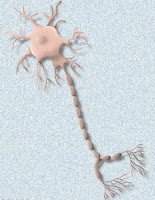Recently, on an extremely chilly night in Albany, I partook of an impromptu Szechuan banquet at the restaurant China Village. A friend of Kat's (with command of Mandarin and an immense and nuanced knowledge of Asian food) pre-ordered 15 or 20 dishes, and 14 people gathered around a circular table to spin the Lazy Susan.
I knew enough to expect the food to be spicy, but am largely ignorant of the specific characteristics of regional Chinese cuisines. It seems that Szechuan dinners traditionally begin with cold meat or vegetable dishes, most of them spicy, but with cooling properties—chilled temperature, palate-cleansing shoots of scallion, a touch of sweetness in the sauces. We tried rabbit in a sweet-hot red sauce that featured whole nutmeg and star anise; tofu skins tossed with soy and scallions; small quartered cucumbers swabbed in a garlic and chili emulsion; and—my favorite—a salad of thinly sliced beef tendon in spicy sauce.
Perhaps because I wasn't thinking carefully about what little I know of mammalian anatomy, I at first pictured beef tendons to be bloody-red in color;  Then I modified my mental image to be one of opaque white, sinewy strings with bits of rare meat clinging to their ends. It fact, the tendons were were translucent, flat, and whitish pink, served in a chili-infused, bright orangey-red heap, and bore a vague resemblance to biology textbook illustrations of neurons and their dendrites, though less gangly. They were surprisingly delicate, and limp but chewy -- what I think shreds of sheets of al dente glass noodles might feel like in your mouth, if such a thing existed -- and I was able to clasp them deftly with my chopsticks.
Then I modified my mental image to be one of opaque white, sinewy strings with bits of rare meat clinging to their ends. It fact, the tendons were were translucent, flat, and whitish pink, served in a chili-infused, bright orangey-red heap, and bore a vague resemblance to biology textbook illustrations of neurons and their dendrites, though less gangly. They were surprisingly delicate, and limp but chewy -- what I think shreds of sheets of al dente glass noodles might feel like in your mouth, if such a thing existed -- and I was able to clasp them deftly with my chopsticks.
When the salad was brought to our table, I realized I'd seen and tasted tendon before--at Quince, where I once worked as an expeditor--albeit in the manner of another foreign land: Italy. I've been unable to determine whether nervetti always means beef tendon en italiano, but it definitely refers to the tendon of a 4-legged beast. Quince's insalata di nervetti (like the Szechuan incarnation) featured hot and sour flavors, courtesy of more Mediterranean ingredients: crushed red pepper, red wine vinegar, raw brunoise of red onion, carrot, and leek, and was sometimes tossed with baby wild arugula. Though it was one of the few dishes that didn't rouse front-of-house employees to battle forks during our pre-service tastings, I was similarly surprised back then by how much I loved the interaction of flavors and textures.
My advice to weird veg enthusiasts? Be bold. Expand your eating horizons to include strange sinews.


Every time I've gone to China Village I've wanted to try the beef tendons-- thanks for your post! You've convinced me.
ReplyDeleteThey're delicious! do it! now!
ReplyDelete